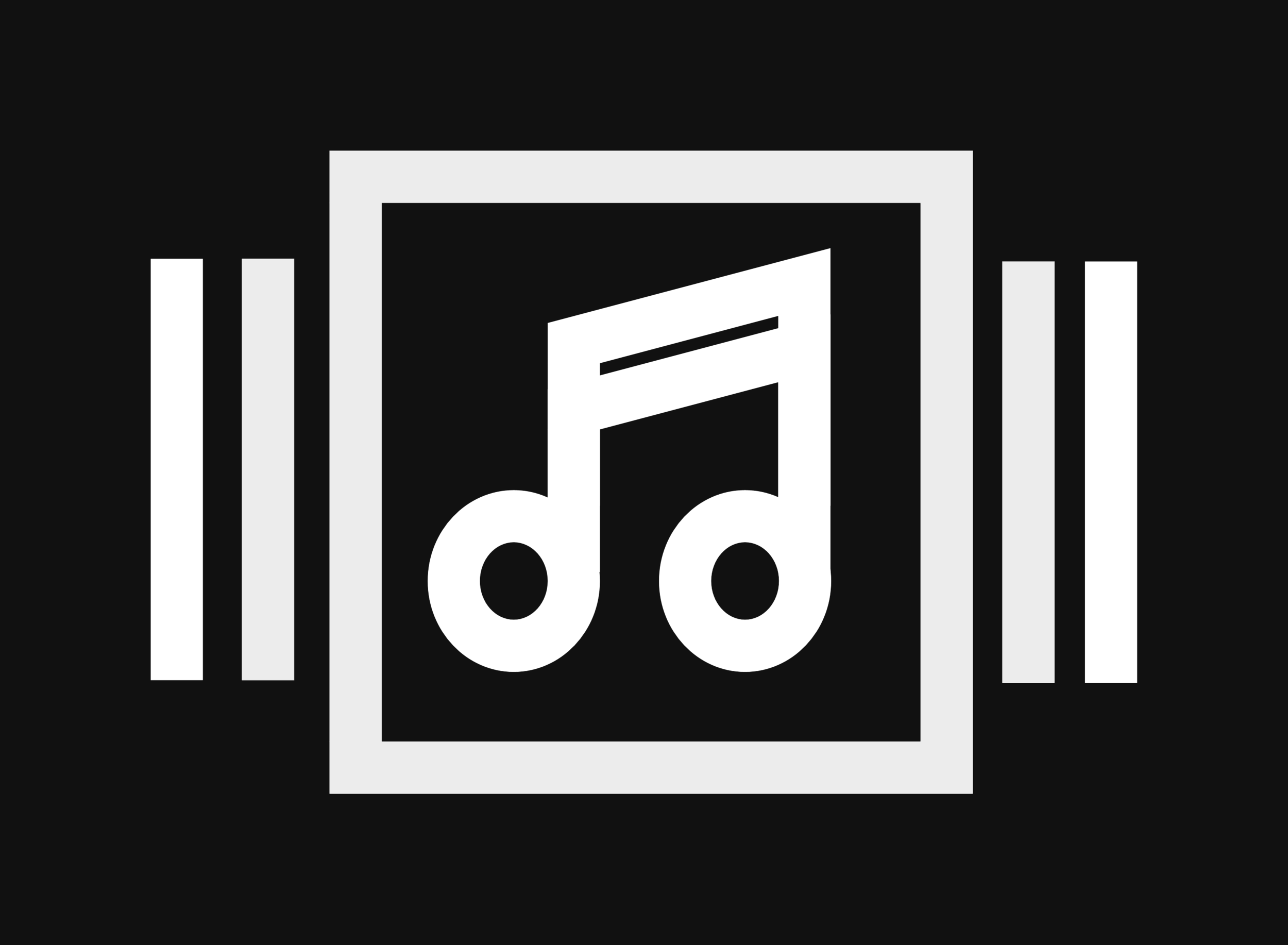Licensing Music for Games, TV or Movie
Whenever you intend to use copyrighted (usually non-public domain) music in your video game or motion picture, you need permission. This article provides some insight in the legal aspects of music licensing, or ‘getting music permission’ in The Netherlands.
Music Licensing in The Netherlands - Movies and Games
The process of licensing music from multiple copyright holders, across multiple territories with different jurisdictions, can be a real challenge. Therefore, the purpose of this article is for you to get familiar with at least the basics of music copyright clearance.
The most important thing is that a game studio or a movie producer, needs permission from each copyright holder involved in a particular music production, before launching a game or film. Never use a song from an unresponsive or untraceable artist!
Music rights: Legal aspects in The Netherlands
Music is of great importance for game and movie development. Effective use of audio in media productions will make the difference between a definite money maker or a meaningless miss.
Now I will discuss the process of music licensing according to Dutch law. It’s all about various layers of music rights. I will address the most important legal aspects of copyright clearance and syncing audio with video in The Netherlands.
Music rights Legal aspects in The Netherlands
License or transfer the music copyrights
Dutch law requires a license (on an exclusive or non-exclusive basis) or transfer of the copyrights on the composition (both mechanical and performance rights, Buma/Stemra, which is the Dutch equivalent of PRS for Music in the UK or Gema in Germany) and the neighbouring or related ('ancillary') rights on the master. In case of movies and games licensing the neighbouring rights of a particular song would be done by the master owner himself or the record label.
Which are the most important collective rights management organizations for music rights in The Netherlands?
- Buma: collects public performance rights for composers and publishers
- Stemra: collects mechanical rights (and some master rights in case of audiovisual productions because of the Anglo-American systematics)
- Sena: collects master rights (neighbouring rights) for producers and performers.
Jurisdiction
The copyright owner's country of origin with its specific jurisdiction and rules regarding copyrights can be an impediment in the music clearance process. Different jurisdictions have different sets of rules. In some countries, such as France or The Netherlands, the game studio or the feature film company will have to contact the artist's performance rights organization directly (Stemra, Sacem) when clearing both the mechanical reproduction rights (reprinting, reproducing, copy, duplication of DVD, Blue Ray etc). It Is not required to personally contact the copyright owner. In the UK, a PRS license is needed for clearing public performance rights. In The Netherlands, Buma will clear the public performance rights.
Opstellen en controleren van muziekcontracten zoals een platencontract of non-exclusief artiestencontract. Muziekrechten vastleggen in een 360 graden deal met standaard muziekuitgaveovereenkomst. Advies inzake muzikale eigendomsrechten en Engelstalige producerovereenkomsten. Vul vrijblijvend het contactformulier in.
Buma/Stemra and Sena or Record Label and Publisher?
Music permission for the master rights then needs to be obtained from the label/ rightsholder directly (NOT Stemra nor Sena). This is quite the peculiarity since Sena is the collective rights society for master owners. This legal structure was established because because record labels wanted to be able to freely negotiate film and game sync deals themselves, so they opted out from collective rights management.
Buma/Stemra and Sena or Record Label and Publisher?
What also might be somewhat confusing is that the Buma / Stemra system for audiovisual media is derived from the Anglo-American (Ascap/BMI, PRS for Music, Majors) practice and not from our own Dutch Copyright legislation. This means lots of similarities with the United Kingdom clearance system with only a couple of minor differences.
Different types of music
The specific types of music a game developer or film producer chooses for a game or movie, will be decisive for the amounts of money (and also the details of the clearance process) that must be paid to obtain the necessary licenses. Four types of music can be distinguished that largely determine the level of compensation for its use in the game, television series or the motion picture. For content creators, hit-repertoire and commissioned music are the most important.
4 music licensing scenario’s:
1. Existing hit-repertoire (Prodigy)
This refers to commercial music, often performed by famous artists, available in stores or on the internet. In most countries, the artist's PRO (Performance Rights Organization) will approach the copyright owners after receiving a clearance request. The main advantage of choosing existing top-40 repertoire is that the music is recognizable for the public. Disadvantages are that there may be no consent or the license fee is exorbitant, even for a non-exclusive license (there are no standard rates to use this type of music in an audio visual media project). Also, the whole music clearance process can be time consuming and deadlines may be compromised. It is recommended to keep precleared alternatives on hand.
Cover songs, remixes, samples and arrangements
Cover songs, remixes, samples and arrangements
When using a cover song i.e. recording and using your own version of a particular hit parade song, just a sync license is sufficient to clear the (publishing) rights on the underlying musical work. A master use license is not needed. If you want to record a cover song, you need permission from the original composer and lyricist, or their publisher.
Musical Arrangements
For the arrangement of (sheet) music of hit parade music that isn’t in the public domain yet, music permission is needed from the copyright owner.
Using samples in your media productions
In case you plan to use samples in your commercial music productions you need to obtain permission from the copyright owner(s). This is called sample clearance. You need a Sample License or Master Use License for the master rights, and permission from the publisher, the composer and, if applicable, the lyricist. No permission is needed when sampling from old recordings that are in the public domain. These are the rules in The Netherlands and in the European Union.
Remixes
Remixes are also subject to the copyrights of the original work's copyright owner. When you want to release a remix you need clearance, i.e permission to use the samples and permission from the copyright owner (a mechanical license and a sync license). Music rights also apply in the online domain, in other words, copyrights also exist on the internet.
Costs for music usage in movies and games: no standard rates
No standard rates
Since there are no standard rates, negotiation is key. Universal, Sony and Warner demand the same flat fee for the composition and the master. So for example 5000 to the publisher for the copyrights, 5000 for the master rights to the record company. Stemra ‘’curates’’ the process.
2. Custom Made Music (commissioned music) by a Buma/Stemra composer
For music that is custom made for the movie or the game (commissioned by the game studio or movie company), or handcrafted to fit your every need, licensing agreements can be made directly with the composer/producer (being usually a single person). The producer generally owns both master and publishing rights which makes the licensing process a lot easier.
Depending on the producer's country of origin, and whether or not he is affiliated to a particular performance rights organization, performance rights royalties must either be paid directly to the producer or to his collective rights management organisation.
Starterspakket met muziekcontracten en algemene voorwaarden voor music startups zoals een online muziekdienst, content platform, dancefestival, platenlabel, management agency of zelfstandig DJ. Checklist online platform oprichten met juridisch advies. Support bij mergers en acquisitions (M&A), fusies en overnames. Opstellen van due diligence rapportages.
Opting out for categories of rights
NB: The composer can choose not to register the works, or opt-out for a particular category of rights, such as online usage. Note that this practice could be formally prohibited by the exploitation contract between composers and Buma/Stemra. Then the same scenario as under (3) applies.
Buma/Stemra developed a special standard contract for this (copy), and there is a standard procedure for the clearance.
3. Custom Made Music (commissioned music) by inhouse or non-Buma/Stemra composer / sound designer, so ‘NON-BUMA/STEMRA repertoire’
This is the best scenario for the film company or the game developer, in case there is no public domain music and a public domain recording available. No interference from Dutch PRO’s in this scenario. Just a buyout or lump sum for transferring or licensing both publishing and master rights, in one contract. This meets the legal requirements of the Dutch Copyright Act and the Neighbouring Rights Act.
Music Copyright Clearance
4. Public domain music
No music permission is needed for using public domain music in your movie or game project. Note that public domain applies to both recordings and the underlying composition and lyrics. It all depends on where you are located, which country, and which jurisdiction. The copyright law of your country determines the duration, or rather the term of protection. In most cases this term is 70 years after the death of the composer.
So you can do whatever you like with the Bolero (Ravel) or the Rhapsody in Blue (Gershwin). Record it, arrange it, edit it, remix it, make a mash up, publish and sell it. No copyright that stands in your way, at least in Europe.
Work for Hire and employers copyright
In case of a labour contract (inhouse sound designer) the gamestudio or film producer acquires all rights by means of ‘employers copyright’. For example, in Dutch law the Copyright Act stipulates that if a musical recording is made by a composer or a sound designer in the course of his employment, both the publishing rights and the neighbouring rights (related rights) are automatically owned by the employer. We call this a Work for Hire, or employers’ copyright.
Music Licensing Contracts
At MuziekenRecht.nl, we draft custom-made contracts for all (sub)scenario’s. I will mention a couple music licensing contract examples below. These contracts can be drafted in both Dutch and English language.
Music Licensing Contracts
- transfer of copyrights contract
- synchronization license
- master use license (hit-repertoire)
- a combi contract entailing exclusive license of both master and publishing rights for commissioned music
- music publishing agreement
- employment contract
- music arrangement agreement
Next up are five basic rules worth remembering for every music contract
1. Never sign anything before consulting your lawyer – always have a professional check the contract. Make sure you have budget for the screening.
2. Do not let the other party intimidate you and always ask for time to think and reflect.
3. Check out the Chamber of Commerce info of the other party.
4. Never sign a dealmemo with basic terms before reviewing and screening the final contract.
5. Never make oral agreements, agreements by email, via Facebook or Whatsapp. Always take time to consult a lawyer, because music law is very complex. It shows that you take the business relationship very serious and creates some professional distance at the same time. You can do the negotiations yourself, or you can have your lawyer represent you. Of course having your lawyer do the negotiations is more expensive. You can also have your lawyer in the background – that’s up to you, and your available budget.
Met een online muzieklicentie regelt u toestemming voor muziekgebruik op internet. Voor uw muziekdienst of music startup of scaleup. On demand en pan-Europees. Ook regelt u de rechtenafdracht voor het syncen van een audiofragment middels een daartoe bestemde licentie, direct met de rechthebbende, het platenlabel of de publisher. Of via rechteninstanties Buma/Stemra en Sena. Bel ons nu.
Costs for music usage in movies and games
The costs for music usage in games, television and other audiovisual media alike will vary considerably depending on many factors. The various music rights involved as well as the types of music being used in the game/film largely determine the music copyright clearance route to be taken, what the costs will be and how long the approval process will take. Other important factors are the notoriety of the music, jurisdiction, the composer or his heirs, record company, distribution method, territory, scope, duration, style and performance, number of broadcasting channels and the number of programs involved. It also depends on whether you want to work out a royalty deal or buyout the music rights, pay a lump sum, scale up or even a revenue share. Because of this multitude of factors and the almost impenetrable forest of rules and regulations, there are many different music clearance paths to distinguish - each with its own procedure and timeframe. We can assist you with this process in an efficient manner.
Some numbers to take into account
The Buma part (making music public) when streaming a game over the internet / live game play is usually 7-10% of netto income of a game.
Licensing Music for Games, TV or Movie
Clearing all rights in all scenario’s should be 15-20% maximum of netto income in case there is a constant presence of hits (such as a Prodigy song). Buyouts are more customary. It heavily depends on your negotiating skills. The Stemra fixed fee for the mechanical rights is between euro 0,23 and 0,50 per dvd copy (they have a formula to calculate this). There is room for negotiation with the performance rights organizations here, in other words the law merely indicates that a reasonable / fee or a ‘fair amount of compensation’ should be paid ( > zero) and leaves ample room for bargaining.
NB: Only for the mechanical reproduction rights Stemra has standard rates.
Music Copyright Clearance
The process of securing music rights for game music is called 'clearance'. Clearance or clearing means getting permission from the owner of the music copyright. To get music permission, music contracts have to be drafted and signed (licenses). Also, royalties will have to be paid for the publishing rights and the master rights. Unauthorised use of a musical composition (the underlying work) or a sound recording of a composition (the master) in a game or a motion picture is an infringement of copyright law.
1. Determine who the owner (copyright holder) of the song or the songwriter or his publishing company. You have to identify who controls the publishing rights of the music you intend to use in the feature film or the (online) game.
License or transfer the music copyrights
2. Locate the owner of the master sound recording, usually the label: the recording copyright. You have to identify who controls the master rights to the sound recording of the music (the actual mp3, .wav, .flac or .aif file) you intend to use in the your movie or game. In case you record your own version of a song and use only this version in your videogame, the master rights do not need to be cleared.
3. Negotiate the terms of the copyright clearance (permission and royalty payments). In case of budget limitations, use custom made music. Pre-existing commercial music will be significantly more expensive to license than library music or custom made music. Generally, exclusive custom made music is the safest way to go as well as most cost effective for successful audio branding.
4. Prepare or review the necessary licenses. This is the domain of your music lawyer. The terms in the license need to be an exact representation of the negotiated agreement between the game studio or the film production company and the owners of the music and sound recording copyrights.
5. Do not use the copyrighted songs in case the copyright owners do not give permission, do not respond to your requests, or in case the owners cannot be located or identified. Be sure to have some cleared music alternatives for your television show or your MMORPG game production.
Music publishing rights are the intellectual properties of the musical composition
Publishing rights
Music publishing rights are the intellectual properties of the musical composition and the lyrics: the music and words composed by the songwriters. Again, It is important to distinguish between the chords and the audio itself. Using music without proper permission is copyright infringement and could result in legal issues.
Master rights
Master rights or recording rights are the intellectual properties of the sound recording: the actual musical performance captured on the master tape. A master license gives the MMO game studio the right to use a particular recorded version of a song in their game. This could be the electronic song you composed and recorded in your own studio, or together with your jazz orchestra or your classical ensemble.
Besides a master use license, a synchronization license needs to be obtained from the owner of the underlying musical work (the chords, melody and lyrics of the song itself) to clear the publishing rights.
Masterrechten op muziek contractueel vastleggen in een labelcontract met de artiest. Sena rechten verdeling maken in opdrachtmuziekovereenkomst en producercontract. Intellectuele eigendomsrechten op de soundfile of master tape. Juridisch advies inzake toestemming muziekgebruik en masterlicentie. Bel of email ons voor info over onze diensten en tarieven.
Synchronization rights
Synchronization rights are a subcategory of publishing rights. It includes the right to re-record and sync a particular musical composition with visual elements in your game. There is no compulsory license for synchronization rights: mutual agreement needs to be reached. Sync licenses do not fall under statutory law. Usually a flat fee must be paid to use the song for a particular period of time. This is an important part of the music clearance process.
Synchronization rights and Master rights
In case you want to combine audio and video in your project and use the original recording you'll also need a master recording license. Generally, the sync license is obtained from the owner of the publishing (artist or publisher), while the master recording license is obtained from the owner of the master rights, usually being the record company. This also depends on the types of music used in a particular game, as seen above.
In some countries music contractual arrangements must be made directly with the copyright owner, usually the songwriter or a publisher, in other countries a license needs to be obtained via the copyrightholder's performance rights organization (only if the owner of the publishing rights is affiliated of course).
As you can see – clearing music rights can be a real challenge
Interterritorial licensing can be a complex process
Interterritorial licensing
Since a number of different people are involved in the creation of a master, such as the producer, the record label and the musicians, getting the necessary clearances can be difficult and time consuming process. Besides that, if a recording is signed to multiple record companies accross the world, you may need to acquire a master use license from different labels in different continents.
If you are the owner of a song you want your music to be placed in commercials, documentaries, films and games. You can ask a flat fee for the master, and an additional fee for the publishing. At the moment, live music and syncing music is what pays the bills for most musicians.
We are a long way off from a centralized global music rights database and harmonizing music copyright law. Interterritorial licensing can be a complex and sometimes confusing process.

















